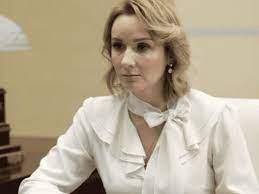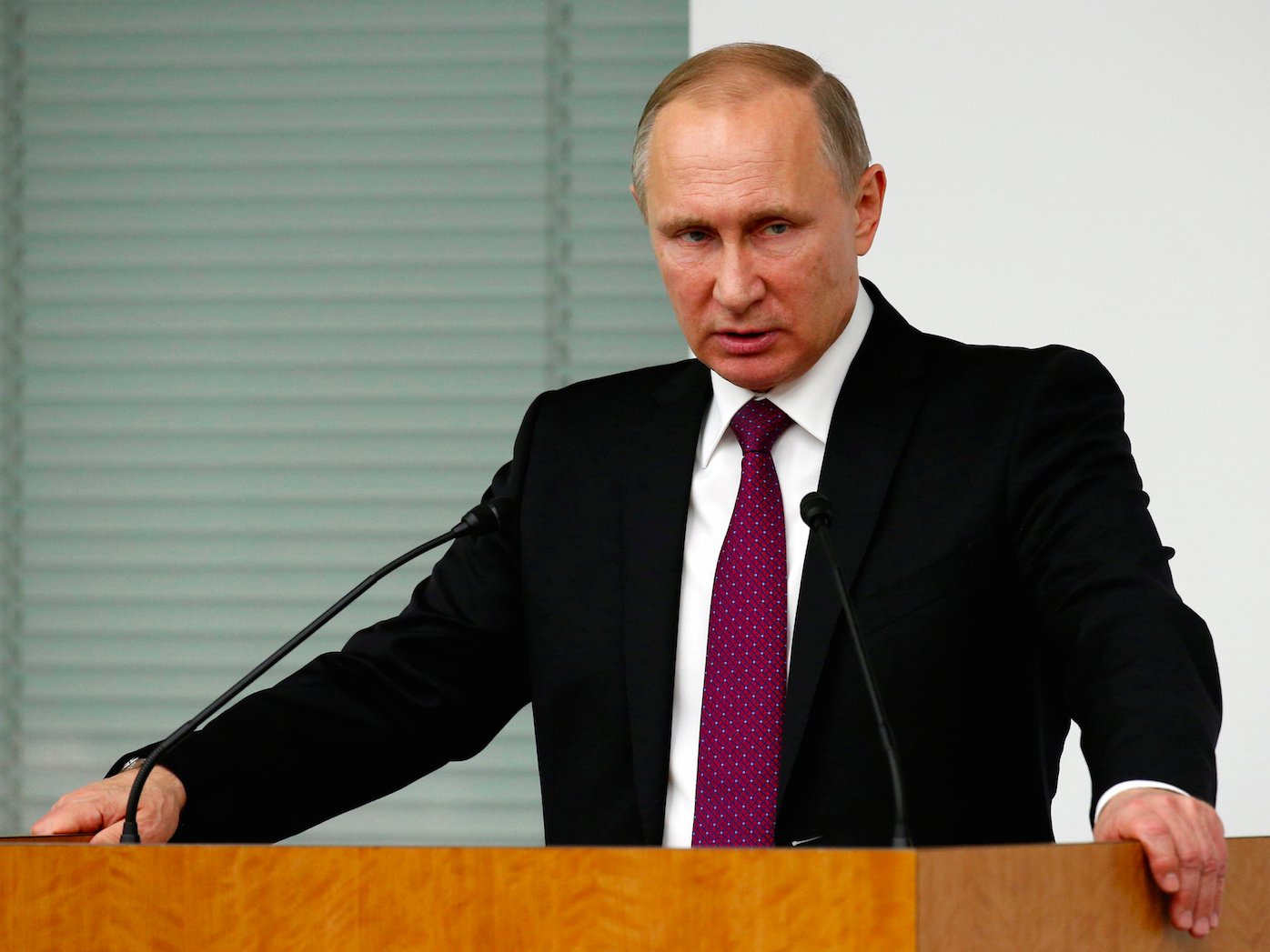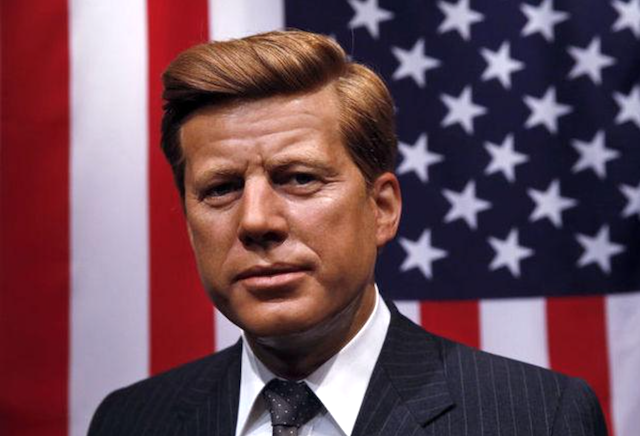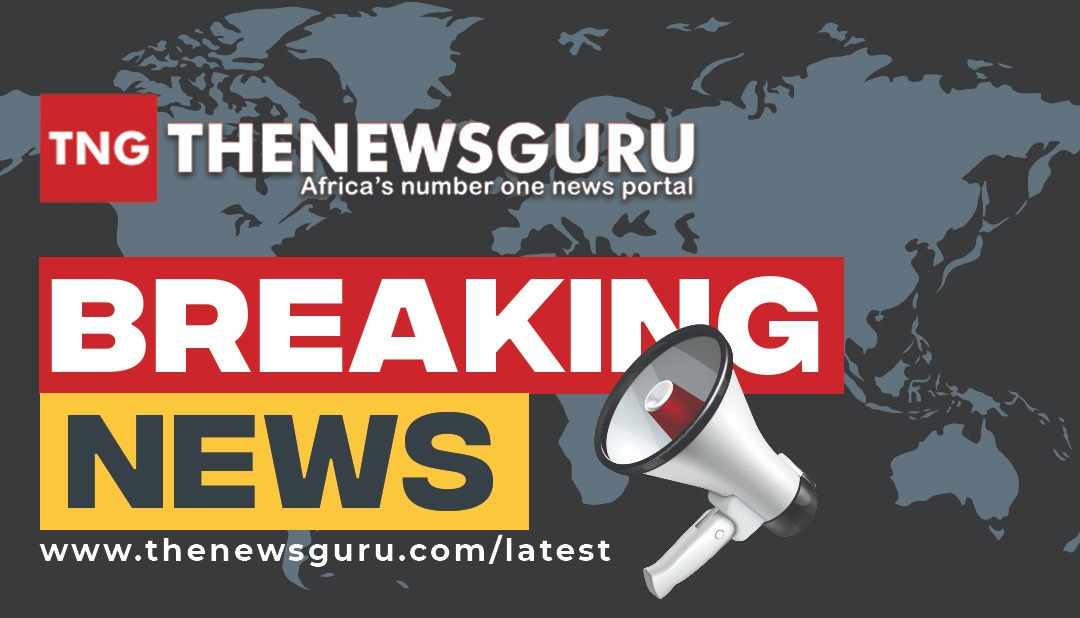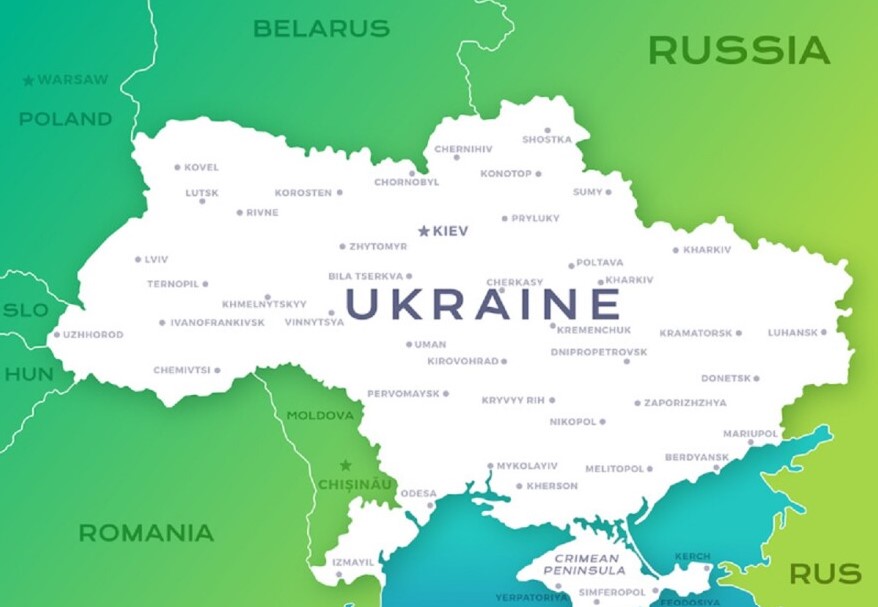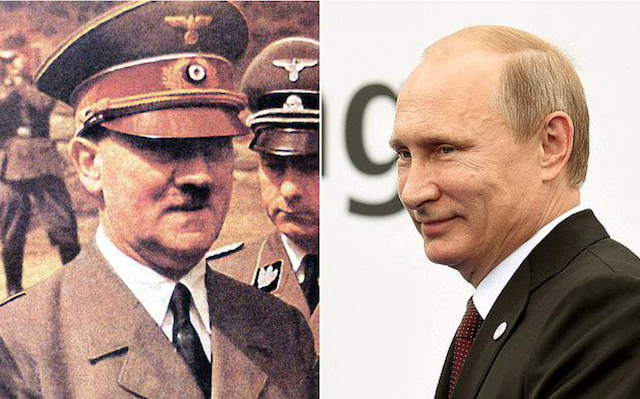Summary
Dennis Onakinor takes a retrospective look at President John F. Kennedy’s diplomatic resolution of the Cuban Missile Crisis of 1962 as he laments the ongoing carnage in Ukraine, which could escalate to a nuclear war amidst President Putin’s unceasing threats to resort to nuclear weapons in the event of an existential threat being posed to Russia by Ukraine’s long-range conventional weapons supplied by its US-led NATO partners. He urges the warring parties to emulate President Kennedy’s example, in order to prevent hostilities from escalating to a global nuclear war.
Full Article
Powerlessness tends to frustrate, and absolute powerlessness frustrates absolutely. Unfortunately, a situation of absolute powerlessness is apparently enveloping the helpless masses of the world, as President Vladimir Putin threatens a global nuclear “catastrophe” should America and its NATO allies continue to militarily support Ukraine in its bid to repel his invasion forces and reverse Russia’s brazen annexation of its four territorial regions – a threat the US’ President Joe Biden says is capable of ending with “Armageddon.”
While people of goodwill across the globe continue to hope and pray for reason to prevail on the part of the nuclear sabre-rattling Russian leader, the honorable pacifism of America’s President John Fitzgerald Kennedy, who selflessly prevented the occurrence of a global nuclear showdown between the US and the Soviet Union in October 1962, comes to mind. In course of that Cuban Missile Crisis, which saw the world tethering on the brink of a nuclear disaster, President Kennedy’s inimitable statesmanship effectively saved mankind from self-annihilation.
On that occasion, trouble began on October 16, 1962, when US Intelligence sources briefed President Kennedy that the Soviet Union was deploying intermediate-range nuclear missiles in Cuba, a Communist island state located barely 93 miles (150 km) from the US coast of Florida. Alarmed by the discovery, Kennedy confronted his Soviet counterpart, Chairman Nikita Khrushchev, who refused to own up, prompting the US president to set up a crisis committee known as “The Executive Committee of the National Security Council” or “Ex-Comm” to deal with the situation.
As documented by Robert Kennedy (President Kennedy’s sibling and then-US’ Attorney General) in his 1969 posthumous publication titled “Thirteen Days: A Memoir of The Cuban Missile Crisis,” the nuclear crisis saw the fate of mankind hanging in the balance. Guided by the singular objective of eliminating the nuclear missiles from Cuba without a military confrontation with the Soviet Union, President Kennedy rejected the Ex-Comm’s recommendation of a military solution to the crisis – massive air strikes on the missile bases. Instead, he opted for a comprehensive naval blockade of Cuba, designed to pressurize Chairman Khrushchev into yielding to his unequivocal demand that the nuclear missiles be dismantled and evacuated from the island state.
As the story goes, President Kennedy had shrewdly calculated that Khrushchev did not also want a military confrontation with the US over the nuclear missiles, but he realized that such a confrontation could occur for reasons of pride or miscalculation on either side. Therefore, he insisted that the Soviet leader must not “lose face” or incur “humiliation” by removing the nuclear missiles from Cuba. According to him: “We don’t want to push him (Khrushchev) to a precipitous action … I don’t want to put him in a corner from which he cannot escape.” In this wise, he instructed the Ex-Comm members and other government officials to refrain from making utterances that tended towards claims of a US’ victory.
President Kennedy’s resolve to avert a military confrontation at all costs was severely tested, to the extent that even when a US’ U-2 reconnaissance flight crashed over Cuban airspace on October 27, 1962, resulting in the death of the pilot – Major Rudolf Anderson Jr., he refused to order reprisals, maintaining that the crash could have been “accidental.” To say the least, every of his move was a calculated risk, and every risk a calculated move. Little wonder the missile crisis ended on a mutually beneficial note on October 28, 1962, with the Soviet Union removing the nuclear missiles from Cuba under UN supervision, while the US equally agreed to dismantle its own nuclear bases in Turkey, which the Soviets had complained about.
Paramount in President Kennedy’s resolve for a diplomatic resolution to the Cuban Missile Crisis was his consideration for the massive human lives, especially that of children, which would have been lost in the event of a nuclear war. As detailed by Robert Kennedy in his aforesaid publication, “The thought that disturbed him the most, and that made the prospect of war much more fearful than it would otherwise have been, was the specter of the death of the children of this country and all the world – the young people who had no role, who had no say, who knew nothing even of the confrontation, but whose lives would be snuffed out like everyone else’s … It was this that troubled him most, that gave him such pain.”
Unfortunately, such pacifist thoughts have failed to find their way into the hearts of the belligerents of the ongoing war in Ukraine, which has so far witnessed the death of thousands of innocent children and women amongst other casualties. With mass-graves and senseless slaughter of both civilians and combatants becoming regular features of the war, there arises an overwhelming need for the belligerents and their supporters to emulate President Kennedy’s concern for human lives and bring hostilities to an end as soon as possible.
Some critics maintain that President Kennedy’s pacifism in course of the Cuban Missile Crisis was informed by his April 1961 “Bay of Pigs” debacle, which saw the humiliation of US-backed Cuban exiles, who had sought to topple Fidel Castro’s communist regime in a military invasion. Be that as it may, it should be noted that he had inadvertently inherited the invasion plan from his predecessor, President Dwight Eisenhower, although he might have actually learnt some vital lessons from its disastrous outcome.
According to Robert Kennedy, during the thirteen-day Cuban Missile Crisis, President Kennedy’s thoughts went beyond the fear of the outbreak of a nuclear war with the Soviet Union to the undesirability of war as a destructive social phenomenon. He complained that “The politicians and officials sit at home pontificating about great principles and issues, make the decisions, and dine with their wives and families, while the brave and young die.” Specifically, he lamented the loss of Major Rudolf Anderson in the U-2 reconnaissance flight crash.
A decorated 2nd World War Navy Reserve hero, President Kennedy decried his military advisers’ propensity for armed solution to every issue that arose during the missile crisis, without taking into consideration the implications, while naively assuming that war was in US’ interest. To him, their inability to look beyond the “limited military field” is a pointer to the importance of civilian direction and control of the military, and the importance of raising probing questions to military recommendations.
From a historical perspective, President Kennedy’s pacifism echoes that of the US Civil War Hero, General Tecumseh Sherman – the originator of the dictum “War is hell.” At the end of the civil war in May 1865, General Sherman reportedly wrote in a personal letter: “I confess, without shame, I am sick and tired of fighting – its glory is all moonshine; even success the most-brilliant is over dead and mangled bodies, with the anguish and lamentations of distant families … it is only those who have never heard a shot, never heard the shriek and groans of the wounded and lacerated, that cry aloud for more blood, more vengeance, more desolation”
Also, in 1879, General Sherman admonished the graduating students of the Michigan Military Academy, thus: “It’s entirely natural that there should beat in the breast of every one of you a hope and desire that someday you can use the skill you have acquired here. Suppress it! You don’t know the horrible aspects of war. I’ve been through two wars, and I know. I’ve seen cities and homes in ashes. I’ve seen thousands of men lying on the ground, their dead faces looking up at the skies. I tell you, war is hell!”
Perhaps, had the warring parties in Ukraine been acquainted with the pacifism of President Kennedy and General Sherman, the ongoing carnage might have been averted. Certainly, President Putin had a genuine case in his demand for “Security Guarantees” against NATO’s eastward expansionism vis-à-vis Russia. But to have opted for military action in place of a negotiated solution to the crisis smacks of international geopolitical gangsterism. But, with benefit of hindsight, it is obvious that there wasn’t sufficient will on the part of Ukraine and its US-led NATO allies to avert the ongoing war, even though Putin’s belligerency may have suggested that he had decided, irrevocably, to resolve the lingering Russo-Ukraine crisis by military might.
Nevertheless, as the war rages and casualties mount, there is an overriding need for the global community to re-dedicate itself to finding a lasting solution, even though Russia has compounded future mediation efforts by its September 2022 annexation of the four Ukrainian regions of Donesk, Lugansk, Kherson, and Zaporozhye. Even so, there is still some cause for optimism in a mediated solution following a series of prisoner exchanges, and the July 2022 Grain Shipment Agreement.
Therefore, it is high time global statesmen with sincerity of purpose stepped up to mediate a peaceful end to the war. Such statesmen must consciously refrain from playing to the gallery in their mediation efforts. They must also ignore the provocative utterances of politicians, especially those of the extreme right wing of the US’ Republican party, who have unscrupulously assumed the role of Russian propagandists as they spew pro-Russian misinformation, which would have earned them long jail terms had they been Russian citizens engaging in such self-abnegation within their Motherland.
Also, the mediating statesmen must be cognizant of the negative influence of the global military-industrial complex, whose agents have been unscrupulously extolling the destructive qualities of their new technological weapons, such as the “Javelin” missile, the “High Mobility Artillery Rocket System” (HIMARS), the “Kinzhal” hypersonic missile, etc. Once again, they are demonstrating their ubiquitous role in the protraction of global conflicts through arms sales.
More than anything else, the mediators must ensure that the war ends on a mutually satisfactory note as far as all the parties to the conflict are concerned. There must be no attempt to impose crushing or humiliating peace terms on any party, especially Russia, which is generally viewed as the aggressor in the war. Particularly, President Putin’s unceasing nuclear threats should be viewed from this perspective.
As President Kennedy said in a speech at the graduation ceremony of the American University in Washington DC, on June 10, 1963, “Above all, while defending our own vital interests, nuclear powers must avert those confrontations which bring an adversary to the choice of either a humiliating retreat or a nuclear war.” To adopt that kind of course in the nuclear age would be evidence only of the bankruptcy of our policy, or of a collective death-wish for the world.”
Dennis Onakinor, a global affairs analyst, has written about a half-dozen articles on the Russo-Ukraine Crisis. He can be reached via e-mail at dennisonakinor@yahoo.com.
